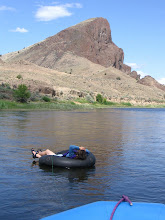I have long been a fan of those pop, or maybe not so pop, culture entertainments of the audio-visual kind. I enjoy the print versions, too, in a nod to a sibling that invests a great deal of personal and professional energy in the science-fiction literature scene. But I think my brain has been moving picture oriented since birth because I am constantly thinking how I would produce a live action version of what I am reading. In fact, that is often how I write, by using that little video camera in my mind to figure out how action unfolds.
I am also very fond of escapism, which has also been lifelong, but the preference has intensified over the last decade or so while I held a series of mentally and emotionally challenging jobs. Recently, I have been struck by the nature of language use in movies and TV. Being a lifelong Star Trek fan, and yes, I am of that generation that uses the term, "Trekkie," I followed the original series, The Next Generation, Deep Space Nine, Voyager, Enterprise and all the movies. And Star Wars was of course on my radar beginning with a vivid memory of opening night of the first movie in Kansas City where a giant furry thing was handing out "May the Force be with you" buttons.
Star Wars unabashedly used Kikuyu (I think that was the language and have no clue how it is spelled...), a language from Kenya. While it produced some sniggers, it made sense to me not to spend time and energy in a new production to make up a language from scratch.
Then, in the Star Trek movies in the 1980s and Star Trek: The Next Generation, a whole new language came to light and developed a life of its own, Klingon. And the real die-hard Trekkers (as they prefer to be called) of this era would learn Klingon and challenge each other to duels at conventions. This was a created language with the creator, Marc Orkrand, drawing inspiration from Native American, Chinese, and south asian languages.
Fast forward to today and there is Avatar. The Na'vi language has garnered its share of fandom with people learning what they can of the language, even to the extent of e-mailing the language's creator, Paul Frommer, entirely in Na'vi. Another famous example of created languages was birthed in the Tolkien books of Middle Earth and which came to life for me in the movies.
It is a great and interesting achievement to so capture the imagination of people that they would adopt a new language and learn it as inside and out as you possibly can a language of perhaps a 1,000 words. But at the same time there are so many indigenous languages in the world, and so many of them in danger of becoming extinct. Would it be so unimaginative to use the time and energy that it takes to to create a language to catalog and record these dying languages and perhaps create a new population of speakers? What a way to raise consciousness about people on our own world that often live lives that are completely alien to so many of the new generations.
Sunday, September 5, 2010
Speaking in old tongues
Labels:
avatar,
communication,
elvish,
language,
linguistics,
movies,
na'vi,
star trek,
star wars,
tolkien
Subscribe to:
Post Comments (Atom)






No comments:
Post a Comment